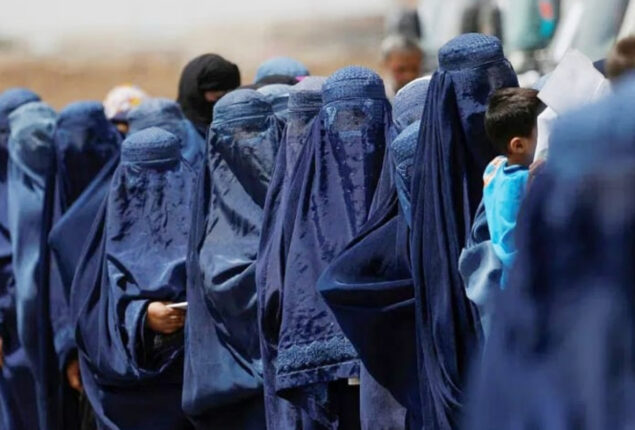Afghan women discuss their lives under the Taliban
Women from all throughout Afghanistan have been speaking with us about life...

UN aid chief pressed Taliban for more clarity on women aid workers
KABUL – The UN aid chief said Wednesday that he had urged Taliban authorities to provide more clarity on humanitarian sectors that could be reopened for Afghan women workers, warning that a “famine was looming” as the country braced for a harsh winter.
According to aid organizations, Afghanistan is facing one of the world’s worst humanitarian crises, with more than half of its 38 million people facing hunger and nearly four million children suffering from malnutrition.
The crisis was exacerbated when Taliban leadership prohibited Afghan women from working with non-governmental organizations, forcing several aid organizations to halt vital work.
In recent weeks, the authorities have only permitted women to work in the healthcare sector.
Martin Griffiths, UN Under-Secretary-General for Humanitarian Affairs and Emergency Relief, expressed hope that more humanitarian sectors would reopen to women workers.
“I’ve been told by a number of Taliban leaders that the Taliban, as an administration, is working on guidelines that will provide more clarity about the role, possibility, and hopefully freedom of women to work in humanitarian work,” Griffiths told AFP in an interview at the UN office in Kabul.
“I think it’s really important that we keep the light shining on the process that led to those guidelines,” he said as he concluded a trip to Afghanistan.
Griffiths led a delegation of senior NGO officials who met with Taliban officials this week in an attempt to persuade them to lift the ban on women aid workers.
It was the second UN-led delegation to visit Afghanistan this month, urging the Taliban government to reverse two recent decrees restricting women’s rights.
Women are not only barred from working in non-governmental organizations but they are also barred from attending university.
Government officials claim the two bans were imposed because women were not following hijab rules, which aid workers and university students deny.
Since retaking power in August 2021, the Taliban government has rapidly pushed women out of public life, prohibiting them from secondary education, public sector work, and access to parks and baths.
Griffiths vowed that when it comes to delivering aid in the impoverished country, the international humanitarian community will insist on sending women.
“Wherever there are opportunities to provide humanitarian assistance and protection in a principled manner, which includes women, we will do so,”
But getting more exemptions for women to work across all humanitarian sectors was an important task at this stage
“We don’t have time. The winter is with us, people are dying, famine is looming,” he said.
“We need decisions now, which is why I think these practical exceptions that we have been talking about are so important.”
Catch all the World News, Breaking News Event and Latest News Updates on The BOL News
Download The BOL News App to get the Daily News Update & Follow us on Google News.